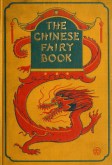The Three Ruling Gods
Chinese Folktale
There are three lords: in heaven, and on the earth and in the waters, and they are known as the Three Ruling Gods. They are all brothers, and are descended from the father of the Monk of the Yangtze-kiang. When the latter was sailing on the river he was cast into the water by a robber. But he did not drown, for a Triton came his way who took him along with him to the dragon-castle. And when the Dragon-King saw him he realized at once that there was something extraordinary about the Monk, and he married him to his daughter.
From their early youth his three sons showed a preference for the hidden wisdom. And together they went to an island in the sea. There they seated themselves and began to meditate. They heard nothing, they saw nothing, they spoke not a word and they did not move. The birds came and nested in their hair; the spiders came and wove webs across their faces; worms and insects came and crawled in and out of their noses and ears. But they paid no attention to any of them.
After they had meditated thus for a number of years, they obtained the hidden wisdom and became gods. And the Lord made them the Three Ruling Gods. The heavens make things, the earth completes things, and the waters create things. The Three Ruling Gods sent out the current of their primal power to aid in ordering all to this end. Therefore they are also known as the primal gods, and temples are erected to them all over the earth.
If you go into a temple you will find the Three Ruling Gods all seated on one pedestal. They wear women’s hats upon their heads, and hold scepters in their hands, like kings. But he who sits on the last place, to the right, has glaring eyes and wears a look of rage. If you ask why this is you are told: “These three were brothers and the Lord made them the Ruling Gods. So they talked about the order in which they were to sit. And the youngest said: ‘To-morrow morning, before sunrise, we will meet here. Whoever gets here first shall have the seat of honor in the middle; the second one to arrive shall have the second place, and the third the third.’ The two older brothers were satisfied. The next morning, very early, the youngest came first, seated himself in the middle place, and became the god of the waters. The middle brother came next, sat down on the left, and became the god of the heavens. Last of all came the oldest brother. When he saw that his brothers were already sitting in their places, he was disgusted and yet he could not say a word. His face grew red with rage, his eyeballs stood forth from their sockets like bullets, and his veins swelled like bladders. And he seated himself on the right and became god of the earth.” The artisans who make the images of the gods noticed this, so they always represent him thus.
Note: “The Three Ruling Gods” is set down as told by the people. It is undoubtedly a version of the Indian Trimurti. The meaning of the terrible appearance of the third godhead, evidently no longer understood by the people, points to Siva, and has given rise to the fairy-tale here told. As regards the Monk of the Yangtze-kiang, comp. with No. 69.
The Chinese Fairy Book

Notes: The Chinese Fairy Book contains 74 Chinese folktales, sorted into several categories.
Author: Various
Editor: Dr. R. Wilhelm
Published: 1921
Publisher: Frederick A. Stokes Company, New York